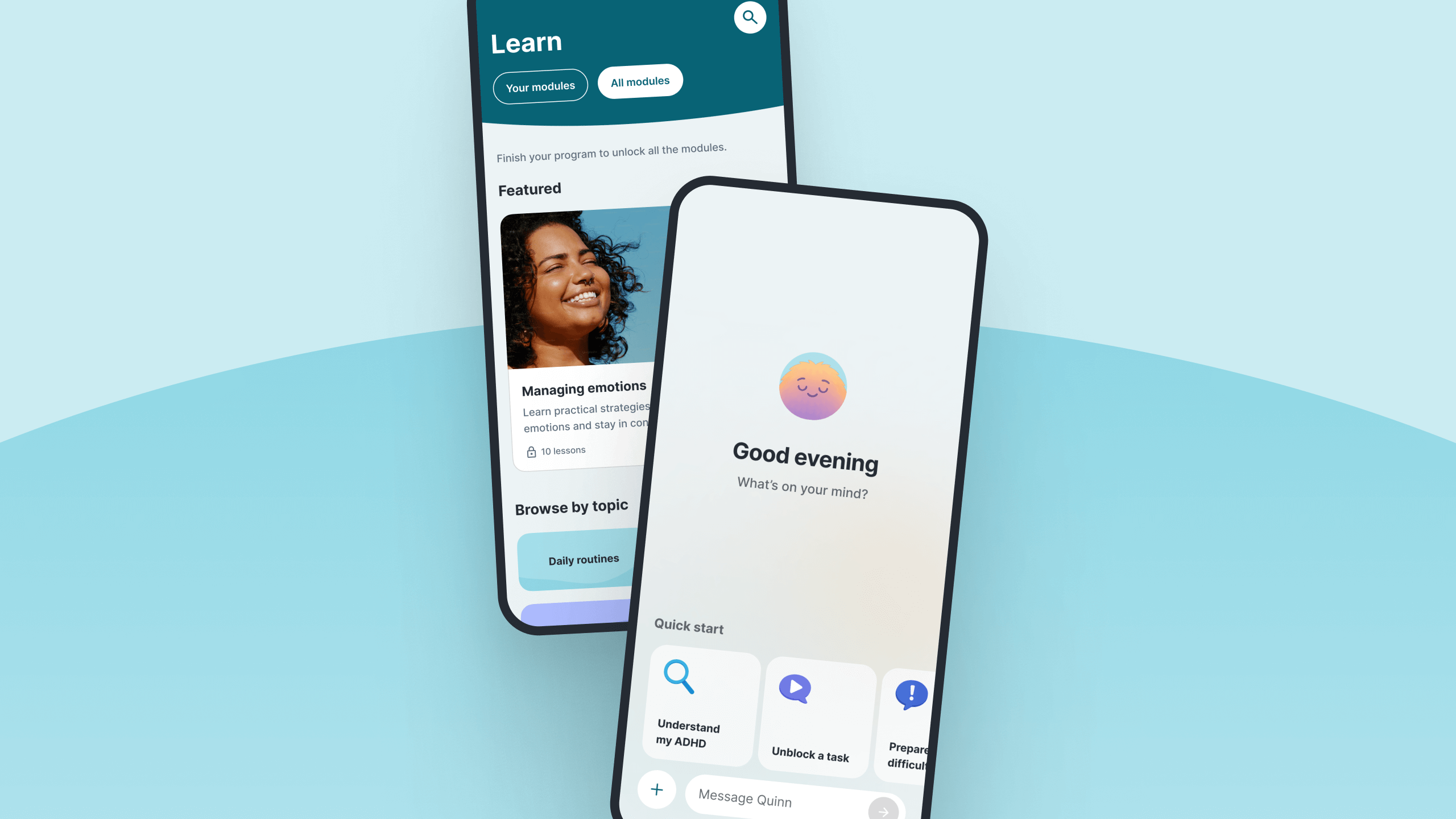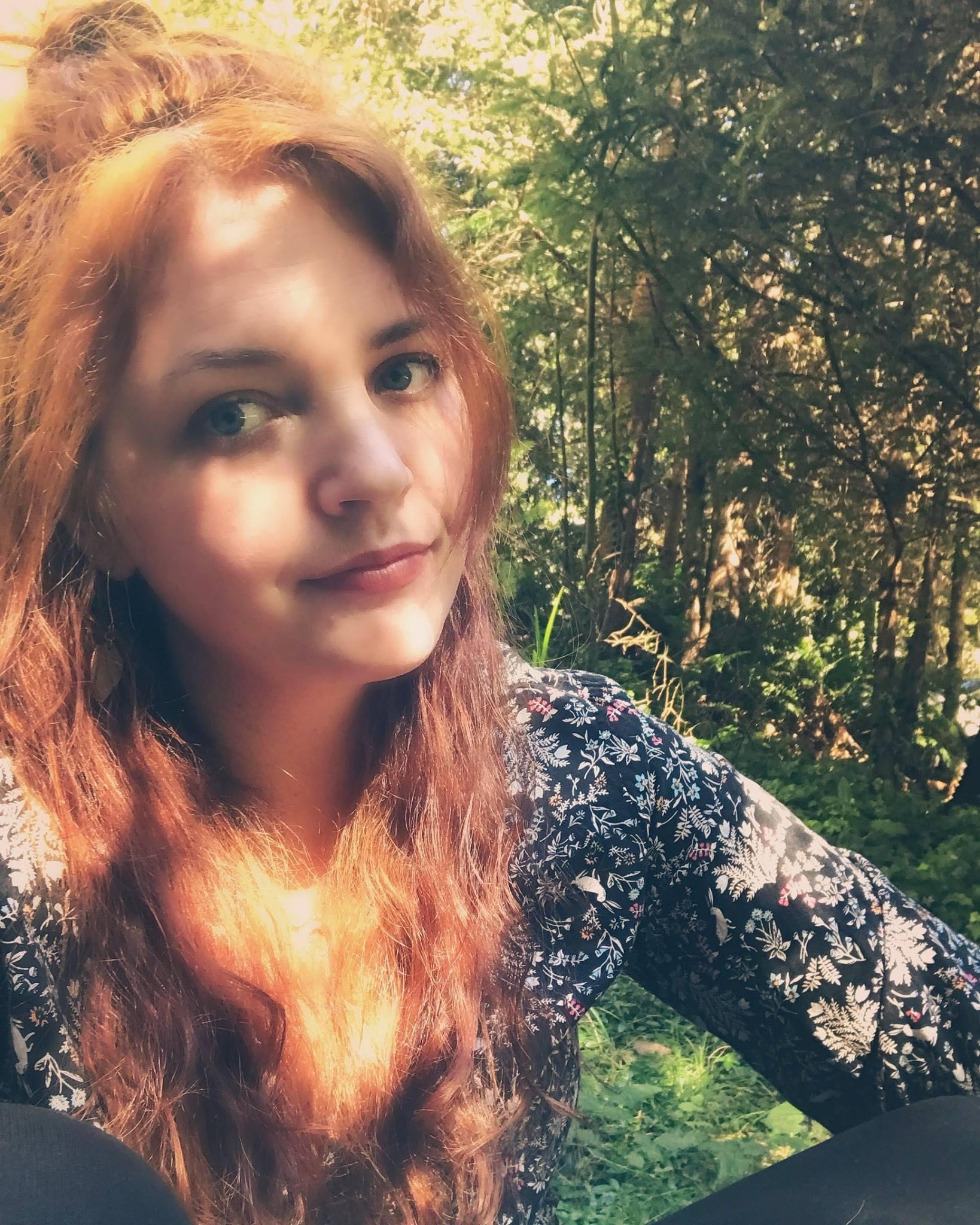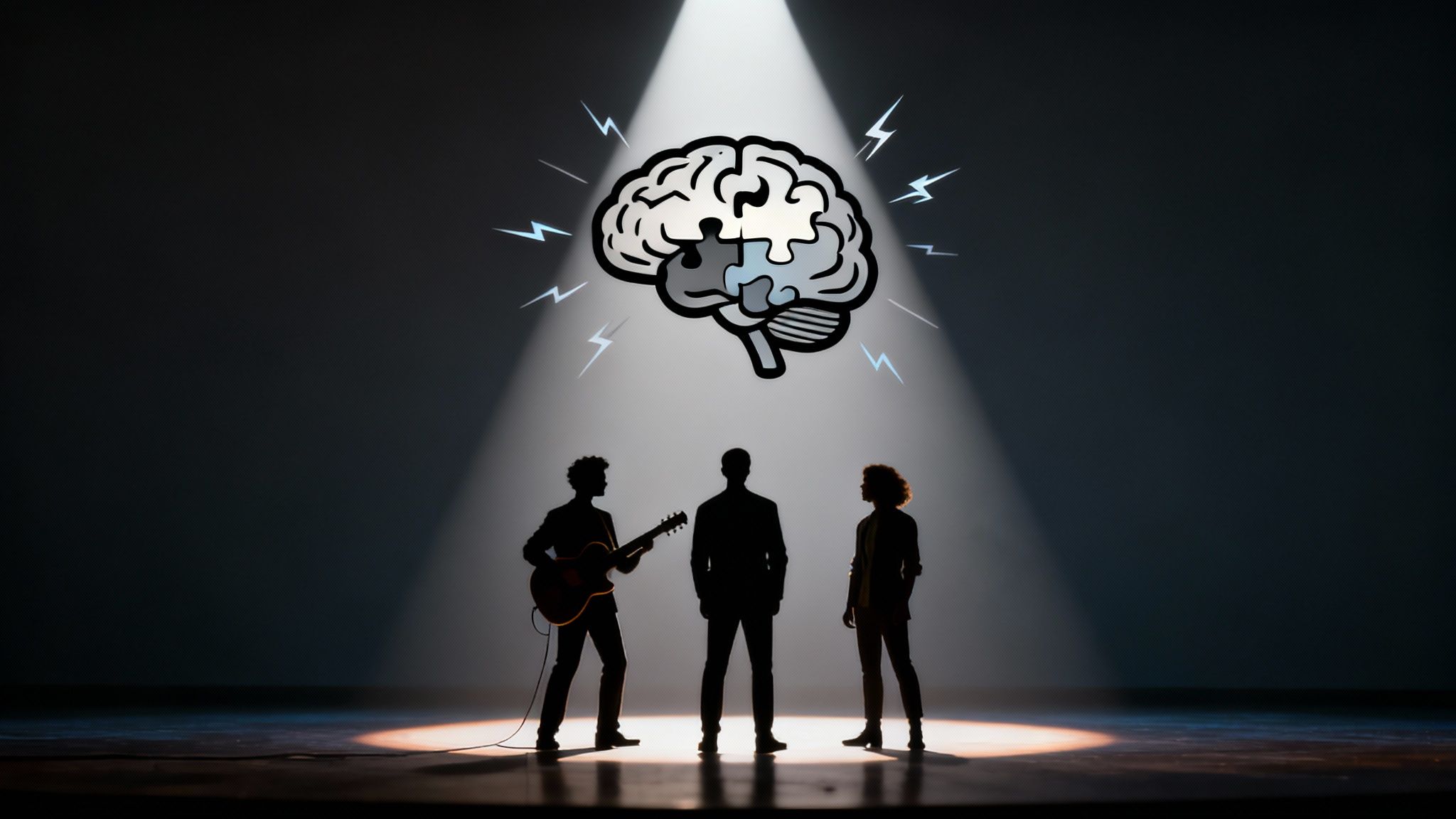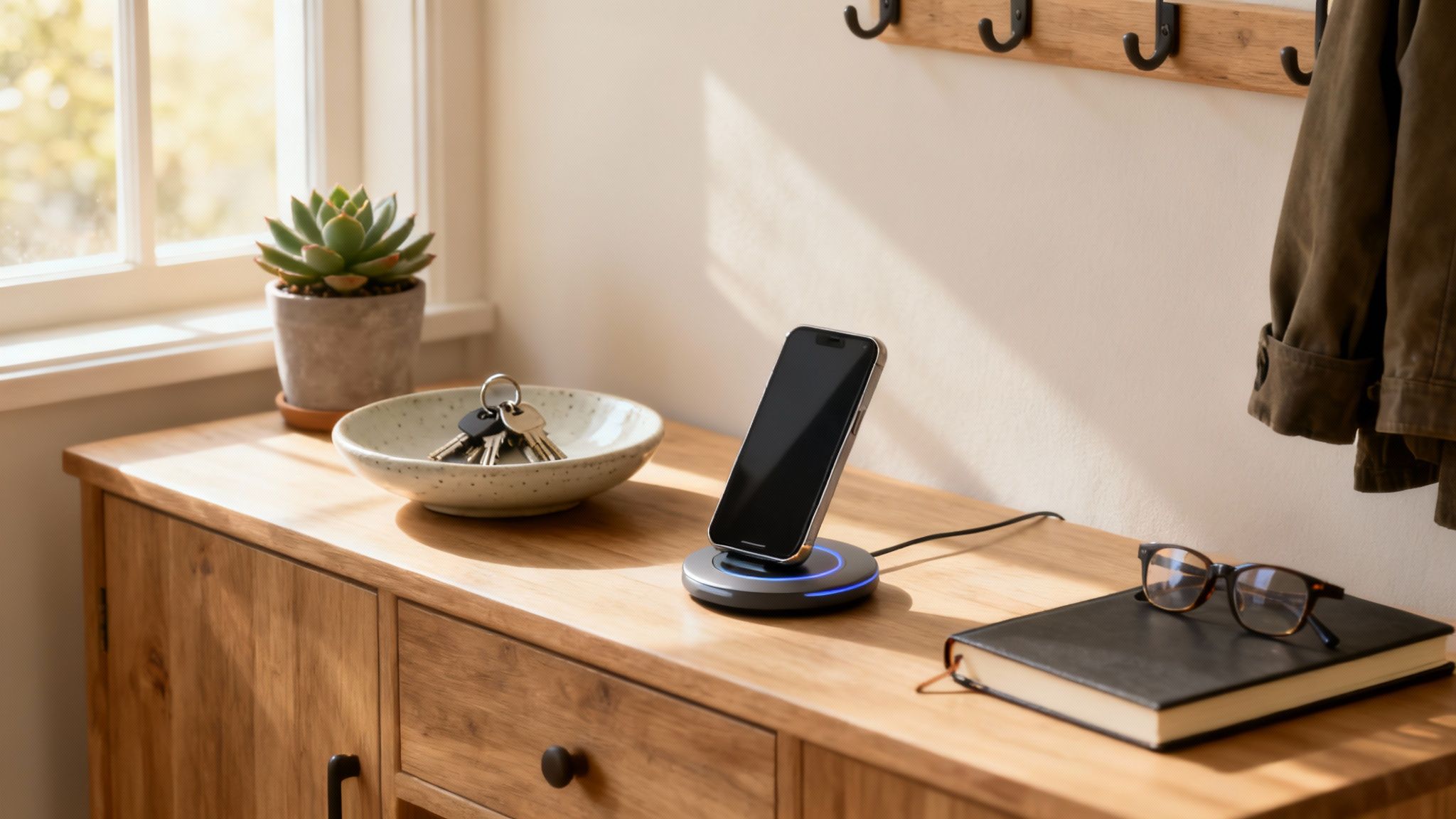Does any of this sound familiar?
- Being labeled as the “smart kid” in school
- As an adult, you struggle to keep up with work, relationships, or personal growth, and feel like you’re under-performing in many areas in life
- Does the sentence, “you had so much potential” ring a bell?
If you said “yes” or “it’s not just me?” at least once, then you’re also likely familiar with “gifted kid burnout syndrome”.
And while you may laugh at the painfully relatable memes about it, the truth is that twice exceptional adults deserve the chance to liberate themselves from the emotional burdens of that label.
Let’s dive in.
What does twice exceptional (2e) mean?
The label “twice exceptional” or “2e” is often used to describe a child that is intellectually gifted while also experiencing the challenges that come along with neurodevelopmental conditions, such as autism, learning disorders, and ADHD.
In other words, 2e individuals are both neurodiverse and gifted.
What kind of traits are considered "gifted" traits?
According to the Summit Center, a trusted resource for neuropsychological assessments and neuroeducational support, “gifted traits” can be sorted into the following categories:
Cognitive giftedness
- Strong reasoning abilities
- Curious and asks a lot of questions; may challenge authority
- Creative and imaginative ideas; often thinks “outside the box”
Mathematics giftedness
- Thinks logically at high levels
- Relating math concepts to new situations
Reading giftedness
- Strong vocabulary
- Quickly understands the “main idea”
Writing giftedness
- Often comes up with new ideas or content
- Elaborates and gives great detail
Who can be twice exceptional?
Generally, people with the following conditions are considered to be 2e if they display the above gifted traits:
- ADHD
- Autism (ASD)
- Learning disabilities (dyslexia, dyscalculia, dysgraphia, etc.)
- Sensory processing disorder (SPD)
- Physical disabilities
- Obsessive-compulsive disorder (OCD)
However, Dr. Dan Peters — co-founder of Summit Center and author of Make Your Worrier A Warrior: a guide to conquering your child’s fears — explains that it’s impossible to measure some gifted abilities, such as being a natural leader or having an aptitude for performing arts.
While these skills qualify someone as “gifted”, individuals possessing these gifts are often overlooked.
Why it's hard to be gifted with ADHD or autism
Dr. Peters also uses a bell curve analogy to describe the common experiences of twice exceptional individuals. Those who fall at the higher end will exhibit distinct strengths, the lower end with more pronounced impairments and challenges, and the middle as the neurotypical standard.
(There's a description of this chart below the image!)
.png)
Legend for above photo: twice exceptional experiences chart
The arrows represent the degree of intensity for individual strengths and challenges, with an upwards arrow indicating a high degree, and downwards indicating low. Likewise, the colors of the arrows represent whether the degree of strengths or challenges is favorable or unfavorable - green as favorable, red as unfavorable.
The challenge of balancing strengths and challenges
With 2e, one of the following situations usually occurs:
- The child’s strengths (gifted abilities) far outweigh their neurodiverse challenges, so whenever the child does struggle with something, they’re often invalidated.
- The child’s neurodiverse challenges are more obvious than their strengths, so their advanced abilities aren’t acknowledged and/or adults spend energy trying to “fix” the child.
- The strengths and challenges crash into each other, canceling each other out and making the child appear to be neurotypical.
But what happens when 2e extends to adulthood? Is that even a possibility — or does this only apply to children?
Things gifted adults struggle with
The “smart kid” label and other toxic narratives
The problem with being a 2e adult is that you’ve probably gone your entire life hearing a lot of harmful narratives regarding your abilities and your worth.
For example, if you were labeled as the “smart kid,” you may equate your self-worth with your intellect — likely prompting an overwhelming pressure to do things perfectly. Or maybe you were told that you’re smart enough to overcome your challenges! (...as if the presence of your strengths just… erases your struggles..?)
And there it is - that toxic notion that gifted people have easier lives by default.
People that might initially have good intentions will say harmful things that cause us to feel more ashamed than confident:
- “Why can’t you just focus? You’re smarter than this.”
- “Stop making excuses. This should be easy for you.”
- “If you could just pay attention…”
- “You’re not working towards your full potential.”
When you’re exposed to an environment that repeatedly nitpicks at your neurodivergent tendencies, it reinforces the idea that you need “fixing” — that you’re not living your life “correctly”. This kind of conditioning nurtures feelings of insecurity, self-doubt, anxiety, and depression.
👎 Read more about what not to say to someone with ADHD.
Struggling to "fit in" in a neurotypical society
We live in a society that values a person’s unique strengths… as long as they don’t require support for their struggles. In other words, gifted adults with ADHD (or autism, OCD, learning disabilities, etc.) are set up from the beginning to struggle through a neurotypical society.
It’s essential to acknowledge the other side of the coin with 2e. We need to accommodate the challenges while also bolstering the strengths. Let’s change the conversation and work to build healthy support systems for twice exceptional adults to thrive — not just survive.
5 pieces of advice for 2e adults
What’s important here is to redefine the label of being twice exceptional and adopt a strength-based approach. Julie Skolnick, M.A., J.D, secretary of the Maryland Superintendent’s Gifted & Talented Advisory Council, states, “self-esteem lies in the foundation for success,” which is why it’s critical to adopt practices that build you up. Here are just some of the ways to build solid support for 2e adults:
1. Free yourself from labels.
The labels that you believed defined your worth during childhood do not define you as an adult. You are not your neurodiverse challenges. You are not your intellect, either.
By freeing yourself from labels that box you in, you can reclaim your agency, freeing you to set kinder, more realistic expectations for yourself.
2. Embrace both your abilities and disabilities.
More often than not, people choose to focus more heavily on someone’s inabilities, while disregarding their unique abilities. It’s important to acknowledge both. Work to understand your challenges on a deeper level, and adopt practices to help accommodate them.
At the same time, play to your strengths — and don’t be afraid to shine the spotlight on them from time to time.
3. Seek out your community.
Whether you do so by reaching out to a trusted friend or an ADHD coach (or even an online community like ADHD Twitter), having a community to turn to that understands your perspective can help you feel validated and seen without judgment.
4. Focus on your interests.
The best way to build yourself up is by pursuing your passions. Where do you naturally thrive? What topics or activities boost your mood? By focusing on what lights you up, you can avoid that dreaded ADHD burnout.
5. Practice self-compassion.
Self-compassion is probably one of the hardest (but most powerful) practices you can master. Whenever you feel like beating yourself up, or pointing out your flaws, learn to pause and separate yourself from the situation.
Final thoughts
The truth is, you don’t have to be “exceptional” all the time! Freeing yourself from the constraints of being twice exceptional, forgiving yourself when you stumble, and nurturing what lights you up — that’s what you can do to regain the balance between the struggles of ADHD and the gift of intellect. Like every other human being out there, you contain countless possibilities for personal growth.
Alan Whitman puts it beautifully:
Do I contradict myself? Very well, then I contradict myself; I am large, I contain multitudes.









